On Nov.11 residents of Bayelsa, Imo and Kogi will return to the poll to elect new governors that will run the affairs of the states for the next four years in an off election circle exercise.
The Independent National Electoral Commission (INEC) is expected to conduct the election in 10, 510 polling units spread across the three states.
In Bayelsa, the election will take place in 2,244 polling units, while it will hold in 3,508 poling units in Kogi. Imo has 4, 758 polling units where the election will hold.
INEC has targeted about 5.4 million voters for the election, with Bayelsa having 1.05 million voters; while 2.4 million voters are expected in Imo. Kogi has about two million voters.
INEC has been engaged in series of activities in the past few months toward ensuring the successful conduct of the election.
However, some stakeholders have expressed concerns over the ability of the electoral umpire to conduct hitch-free election in these states, going by the experiences of the 2023 general polls.
Although the umpire insists that it did a good job in the polls, many Nigerians, particularly those on the opposition side think otherwise.
They cite the some logistics challenges, especially late arrival of election materials and election officials in polling units as examples of areas that need improvement.
There is also the reoccurring problem of malfunctioning of the Bimodal Voters Accreditation System (BVAS) in polling units, leading to delay in the accreditation of voters and voting.
In some polling units, voting was delayed for many hours, as voters remain on queues to perform their civic rights of electing their leaders.
Although INEC has reassured of its resolve to address the challenges, stakeholders say the commission must buckle up, if it wants to conduct hitch-free, free, fair and credible election.
Mr Yabagi Sani, the National Chairman, Inter-Party Advisory Council (IPAC) tasked INEC to strengthen its capacities to ensure hitch-free election in the three states.
He expressed optimism that INEC would strive to rebuild trust between itself, political parties and the electorate by ensuring hitch-free poll.
“We in IPAC believe that INEC has learned some lessons and they know that there is a huge deficit of trust between the commission and Nigerians.
“This happened because INEC was over ambitious and wanted things to work very well during the presidential elections, but underlined conditions did not allow them to achieve the high standards they set for themselves.
“So INEC will have to go back to its drawing board and take a look at things that went wrong and correct them.
“And this doesn’t mean that they should throw away their technological advancements because they served their purpose and there is nothing wrong with the use of technology,” he to the News Agency of Nigeria (NAN) during a recent interview.
Sani said that the use of technology was not the problem of INEC in the conduct of the 2023 general election but the conducts of its officials, political parties and their agents, as well as the conduct of Nigerians.
He advised the commission to improve on its technology usage in order to set a better standard for Nigeria in the global scene as the largest and strongest democratic country in Africa.
‘’INEC must show a good example in the Nov.11 off-cycle governorship election, it should show that we have technology and we can use them perfectly,’’ he said.
Sani said that all hands must be on deck to ensure that electoral officers are not pressured by governors to falsify results in the election.
“As we approach the off- cycle election in Imo, Bayelsa and Kogi states in November, all hands must be on deck to ensure the resident electoral commissioners and returning officers are not pressured by some governors and INEC itself to falsify results in their states.
“The Adamawa state 2023 governorship election result declaration saga and the embarrassment caused INEC and the nation at large is a case in point.
“The prosecution of the Adamawa REC in court by INEC is highly desirable and commendable.
“Equally desirable is action by all relevant security agencies to check the misuse of state resources in violation of the Electoral Act 2022,” he said.
Mr Hamzat Lawal, the Chief Executive Officer, Connected Development (CODE), a Civil Society Organisation, corroborated Sani’s claim, urging INEC to improve on its logistics management, ahead of the November election.
Lawal, also the founder, follow the money, said that INEC must strive hard to close the logistics gaps observed in the 2023 general election to achieve a successful off-cycle election.
“If we in CODE are saddled with the responsibility of undertaking electoral management, first, we will invest heavily in logistics, which is one impediment.
“The second is human capital development and training of ad hoc staff in time, not a few weeks to elections, this is because these are two major gaps we faced in the last election.
“This is an off circle election so there should be no pressure on the commission,” he said.
Mr Emmanuel Njoku, the Director, Democracy and Governance, CODE, said there is a need for INEC to seek for more electoral reforms to tackle some issues in organising elections in Nigeria.
Also, Mr Bayo Balogun, a member of the Yiaga Africa observer mission at the just concluded Liberia’s election, urged INEC to take lessons from the smooth conduct of the election, toward improving on the Nov.11 off-cycle election.
Balogun, is also the Chairman, House of Representatives Committee on Electoral Matters.
He said that INEC needs to change the format of its ballot papers to include photographs and names of candidates to improve the quality of electoral preferences and reduce invalidated votes.
“We also noticed that the Liberian National Elections Commission (NEC) displayed high devotion to rules and procedures throughout the elections.
“Polling officials displayed excellent knowledge of the rules and enforced the guidelines at all election level,” he said.
Balogun also urged National Assembly to strengthen the electoral laws by making electronic transmission of results mandatory in future elections in Nigeria.
He said this should include the upload of polling unit-level results and results sheets at different levels of results collation.
Balogun urged political stakeholders in Nigeria to demonstrate firm commitment to democracy and nation-building by upholding national values such as patriotism, integrity and public interest in electoral politics.
Prof. Mahmood Yakubu, INEC Chairman, acknowledged some challenges in the conduct of the last election as ass the commission is working hard to ensure that the election is free, fair and credible.
“We are giving our words to Nigerians that we must open polling units at 8.30a.m on the dot on the Election Day.
“Therefore, Registration Area Centres (RACs) must be activated for commencement of voting at 8.30a.m.,” Yakubu said at the Kogi Local Government (LGA) office of the commission during INEC mock accreditation for the election in Lokoja on Oct.14.
He said one of the main concerns of the commission is the prevailing security challenge in the country.
Yakubu said that the commission is working with the security agencies to provide secured environment for peaceful and credible election.
“Wherever you go in Nigeria, you are sure to see two government offices. One is INEC. You will see an INEC office in the LGA headed by an electoral officer, an Electoral Officer (EO).
You will also see the police office headed by a Divisional Police Officer (DPO) for the local government.
“So, we are everywhere working together. And I’m happy that we are working together as we prepare for the elections,“ he said.
Yakubu said that INEC plans to deploy 46,084 officials comprising of both permanent and ad hoc staff for the conduct of the election in the three states.
“While we are leaving no stone un-turned in other areas of preparation for the elections governorship elections the commission plans to deploy 46,084 regular and ad hoc staff for exercise.
“We are also finalising arrangements for vehicles and boats for land and maritime movement of personnel and materials,” he said.
Yakubu said that such massive deployment requires a secured environment which he said was beyond the commission’s immediate responsibility.
“On our part, we will continue to deepen our engagement with the security agencies and more meetings are planned in the next few days.
“Similarly, the commission will hold series of meetings with stakeholders at the national level in addition to ongoing engagements at the state levels,” he said.
The INEC Chairman expressed confidence that the Bimodal Voter Accreditation System (BVAS) would perform better in the Nov.11 election.
“Last week, we conducted a mock accreditation involving actual voters in designated polling units in the three states; we had two objectives for the exercise.
“Firstly is to test the efficacy of the BVAS for biometric authentication of voters; secondly, to upload the result to the INEC Result Viewing Portal (IReV). Both tests were successful.
“We look forward to improved performance of the BVAS in voter accreditation and result uploading in the forthcoming elections,” he said.
Yakubu said that all non-sensitive materials for the election had been delivered to the three states, so far.
He said that the election would involve 5,409,438 registered voters in 10,510 polling units spread across 649 electoral wards in 56 Local Government Areas (LGAs).
He said that other preparatory activities, including training, were on course, while valuable lessons learnt from the 2023 general election would be used to improve performance of the Nov.11 election.
As preparations for the elections hit top gears it is important that all INEC personnel, stakeholders and politicians in the affected states cooperate with INEC to ensure hitch-free polls. Failure should not be an option.

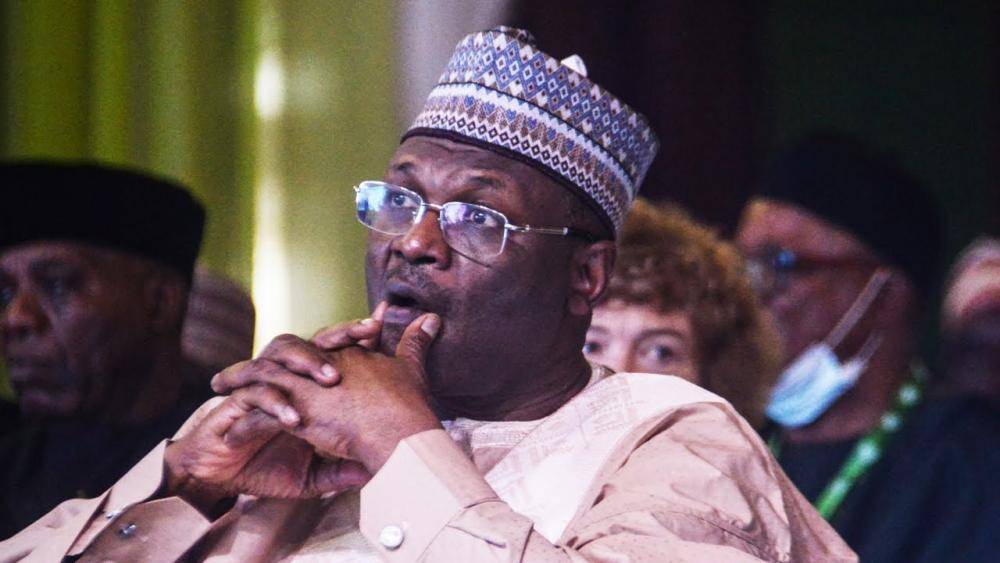
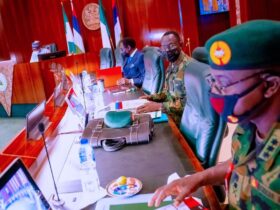


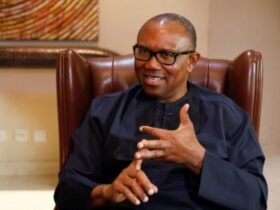
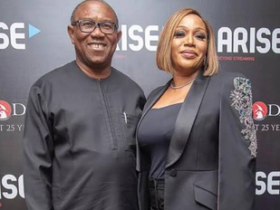

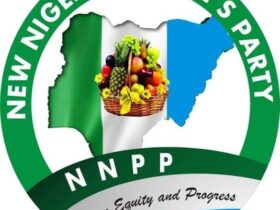


Leave a Reply